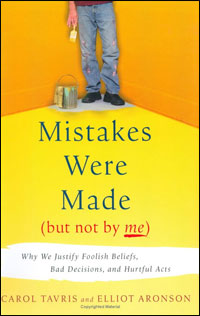Why Are We So Easily Fooled?

Yep... there's a bit of a common theme running through the last few posts, the ease with which the mind can be fooled. Here's another one for you. Take a good look at this image...
The squares marked A & B are the same shade of grey.
Absurd, ridiculous, I hear you say. I thought so too until I checked by opening the image with gpaint (The Linux equivalent of MS Paint, although it's a misnomer to call it an equivalent when its clearly superior).
Yes, this is simply an optical illusion but think about it. If we can be so easily fooled by something so simple, what does that say about other judgements we make in life? A bit too sobering or negative? Perhaps. But the most astounding thing about this is the mind's stubborn refusal to see things as they actually are. Even though I can logically convince myself that these too shades are identical, I can't see it. Try as I may, I can see the shades are the same when they're put next to each other, but as soon as I look up again, B is clearly lighter than A, even though I know it's not.
but think about it. If we can be so easily fooled by something so simple, what does that say about other judgements we make in life? A bit too sobering or negative? Perhaps. But the most astounding thing about this is the mind's stubborn refusal to see things as they actually are. Even though I can logically convince myself that these too shades are identical, I can't see it. Try as I may, I can see the shades are the same when they're put next to each other, but as soon as I look up again, B is clearly lighter than A, even though I know it's not.
So why is the mind so easily fooled? I'd like to hear what you think? For my part, I think it comes down to the fact that perception is a mental action, not a function of the eyes. Think back to your high school biology class and how the lens in the eye inverts everything, making everything upside down. The mind then has to process that image, turn it right way up so it reflects reality. So everything we see has been processed to one degree or another. It's all be tampered with subconsciously.
In short, we see what we are supposed to see...






























